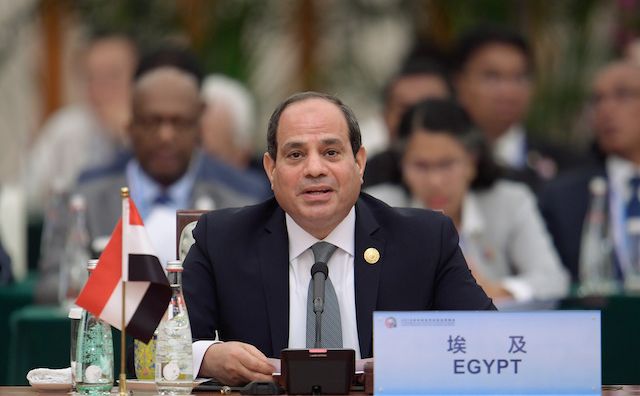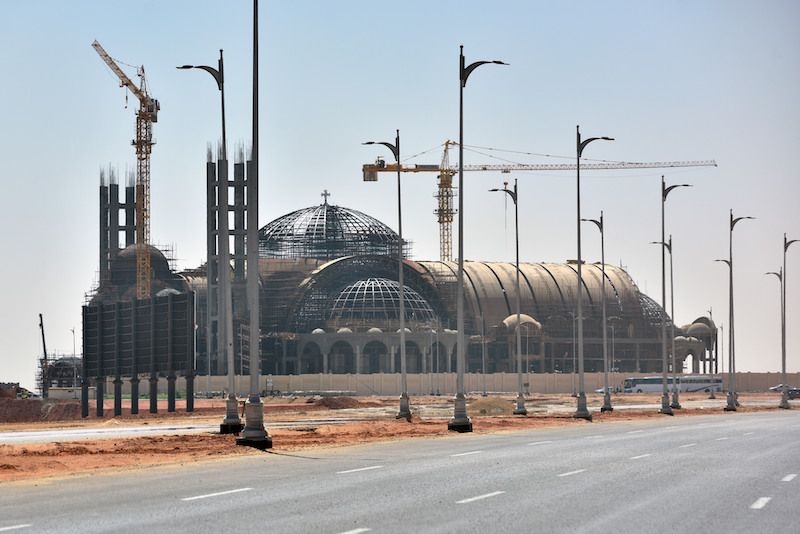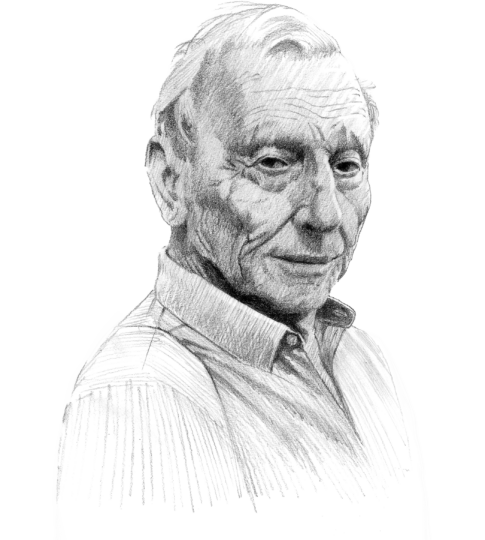Quietly rebuilding economic strength
Following his 2013 coup d’etat, Egypt’s former defense minister, Abdel-Fattah El-Sisi, was elected the country’s president by an overwhelming margin. After five years in charge, Mr. El-Sisi has accumulated a predictably shoddy record on human rights but a surprisingly strong one as an economic reformer and agent of stability in the region.

In a nutshell
- Egypt’s president was elected in 2014 and reelected in 2018, in both cases with overwhelming support from voters
- President El-Sisi is not a Western-style democrat and his human rights record is bad, but, in these respects, he is not worse than his predecessors
- He deserves credit as an economic reformer and defender of stability in the Middle East matters of importance to the West, the EU in particular
President Abdel-Fattah El-Sisi has been ruling Egypt for more than five years now. Has his country achieved political stability? Is it on the road to sustainable development? What about the Islamic terrorist insurgency in the northern Sinai Peninsula? Unfortunately, global public opinion does not focus on the answers to these vital questions. For some, Mr. El-Sisi is merely a military dictator riding roughshod over human rights. Others point out that the country is back on track after years of bloody turmoil and that substantial economic progress has been made, while fundamentalists’ attempts to spread Islamic terror and turn Egypt into another Syria or Libya have been mostly, if not wholly, foiled.
In early January 2018, 60 Minutes, a prestigious TV newsmagazine in the United States, ran a segment on Egypt. Interviewing the president, the program’s correspondent Scott Pelley launched a scathing attack on Mr. El-Sisi’s reported violations of human rights and persecution of members of the Muslim Brotherhood organization. And Andrew Miller, former Egypt director in the National Security Council during the administration of U.S. President Barack Obama, told the viewers of the “peaceful, gradualist approach of the senior Muslim Brotherhood leadership” and the organization’s benevolent activities in the fields of education, charity and healthcare. Mr. Miller also insisted that Egypt under the current president was unstable, living standards were down and the Sinai insurgency on the rise.
Stability at a price
On July 3, 2013, Minister of Defense Field Marshal El-Sisi led the military coup against President Mohammed Morsi (elected on June 30, 2012) and his Brotherhood administration. The move followed massive street protests against the radical Islamist regime. The coup received broad support from the population. Prominent figures in Egypt, such as Grand Imam Ahmed el-Tayeb of Al-Azhar mosque and Coptic Patriarch Tadros II, as well as political opponents, including former presidential hopeful Mohamed ElBaradei, sided with Mr. El-Sisi.
Egypt is not a liberal Western democracy, but it is stable.
The marshal was elected Egypt’s president in 2014 and reelected in 2018, in both cases with overwhelming support from the voters. Unlike his predecessors, Gamal Abdel Nasser (1956-1970), Anwar Sadat (1970-1981) and Hosni Mubarak (1981-2011), President El-Sisi has not encouraged the formation of his own political bloc. Instead, he initiated electoral reforms that favor independent candidates supporting the president. As a result, the government’s proposals sail through parliament with a comfortable 60 percent majority in the 596-member unicameral body.
Egypt is not a liberal Western democracy, but it is stable. The stability comes at a price: there is no political opposition to speak of, the count of political prisoners goes into thousands – most of them are members of the Muslim Brotherhood or suspected members of terror organizations, but the number of imprisoned journalists has been growing as well – and newly-imposed laws are curbing Egyptians’ freedom of speech and demonstration. Mr. El-Sisi’s predecessors, however, resorted to the same methods, in vain, to find a suitable balance between democracy and authoritarianism. Yet, the system seems to suit Egypt.
The army’s role
There is no indication of incipient popular opposition movements. Polls show consistently that Egyptians proudly see their armed forces – the biggest in the Arab world – as a pillar of national unity and believe that it should have a role in ruling the country. The army is, in fact, a big player in a third of Egypt’s economy through the factories it has set up. As the most effective organization of the country, it is also active in infrastructure projects.
That army, however, has been unable to eradicate Islamic combatants in the northern Sinai Peninsula: despite suffering heavy losses, terror groups remain capable of carrying out attacks in the main part of the country, hitting not only military targets but also Coptic churches. In the interview mentioned earlier, Mr. Pelley provocatively asked President El-Sisi why he had not “wiped out” the terrorists. “And why hasn’t the U.S. eliminated the terrorists in Afghanistan after 17 years and a trillion dollars?” came the swift reply.
To its credit, the Egyptian military and security forces have prevented attacks on the international tourist resorts on the southern part of Sinai, the source of Egypt’s significant hard-currency income, as well as on the Suez Canal. Though northern Sinai was to be demilitarized under the terms of the 1979 peace treaty, Egypt has dispatched there – with Israel’s consent – an estimated 40 battalions equipped with armored vehicles, tanks, helicopters and even F-16 fighter planes. President El-Sisi acknowledged that was his country’s closest cooperation with Israel, adding tellingly that Egypt’s air force “sometimes needs to cross to the Israeli side.”
Supporters of the grand imam are getting organized.
Military experts point out that the Egyptian army lacks good intelligence and mobile forces needed for guerilla warfare. Large numbers of troops and heavy equipment can be detected and attacked easily. The Egyptians, however, have made progress and in 2018 eliminated hundreds of terrorists and destroyed their infrastructure in Sinai. But several areas of the region remain under a night curfew, which hampers freedom of movement.
Taming the imams
There is yet another aspect to the war that Egypt’s leader is waging on terror – a counteroffensive in the realms of religion and education. In 2015, President El-Sisi had the texts regarded as inciting to Jihad or insulting to others purged from elementary school textbooks. He tried in vain to enlist Al-Azhar, the most respected Sunni institution, in what he labeled “a revolution in Islam” – a call to moderating its religious narrative which had evolved over centuries to the point it has lost contact with the modern world and led to fratricide wars.
Grand Imam el-Tayeb has clung stubbornly to his belief that Sharia law is perfect, pertinent to all situations and periods in time and that Islam was a religion of peace. The government then set up a new religious academy to train imams and announced that it would henceforth supervise Friday sermons in mosques to prevent incitement. Supporters of the grand imam are getting organized. Battle lines have been drawn in what will be a decisive fight for the face of Islam in Egypt.

The situation of the large Coptic Christian minority has considerably improved under the El-Sisi regime. Often harassed by their Muslim neighbors, the Copts also see their churches targeted by Islamic terrorists. President El-Sisi has simplified administrative procedures that pertain to building and repairing houses of prayer and issued permits for churches that have been built with no official authorization. Since he took office, the president went every year to the most important Cairo church at Christmas, to meet Patriarch Tadros II. This year, on January 7 – date of the Coptic Christmas – he visited the huge new church and mosque built in the nearly-completed new administrative capital east of Cairo. Such gestures by the leader are intended to convey a message of tolerance to the nation and to stress the unity of Egypt.
Economic modernization
It is, however, on the success or failure of his policy of economic development that the president’s record will be judged. He has pledged to devote all his efforts to the tasks of transforming the economy and creating conditions for sustainable growth. Egypt’s population in 2018 was estimated at 99.4 million and about 2.4 million people are born there every year. The country’s gross domestic product (GDP) amounted to $336 billion in 2017. (The corresponding figures for Belgium were 11.5 million people and a GDP of $493.7 billion.) Egypt’s exports reached less than $23.3 billion, against nearly $60 billion for imports. Exports consist mainly of oil and gas with some agricultural products; industrial exports account for less than $2 billion. Such a trade deficit cannot be sustained for long. The country needs to develop export industries.
Shortly after Mr. El-Sisi took power, Egypt received some emergency assistance from Saudi Arabia and the Arab Gulf states stabilize its economy and embark on the president’s ambitious infrastructure-building plans, such as adding a second waterway to the Suez Canal. He understood, too, that structural reforms were a necessity and turned to the International Monetary Fund (IMF) for a substantial credit line of $12 billion. The government canceled most of the subsidies on oil and gas (to meet the conditions of the IMF loan), floated the Egyptian pound, introduced value-added tax and streamlined bureaucracy to facilitate foreign investments and trade. Also, much of the needed infrastructure has been constructed.
A truly pharaonic-scale endeavor to carry out in five years.
Thousands of kilometers of new roads have been built and electricity, water and gas infrastructure has been overhauled and expanded. New schools and universities have been created. Land reclamation of 630,000 hectares for agricultural purposes has gotten underway. The country’s new administrative capital, conceived to reduce congestion in Cairo, is scheduled to be up and running by the second half of 2019, with all government ministries in the new place. It was a truly pharaonic-scale endeavor to be carried out in only five years.
It bore fruit. Egypt recorded a 4-5 percent rate of growth over the past two years and even better results are projected for 2019. Unemployment is down from 12 to 10 percent. It is still far from enough, though. For the economy to catch up with the population expansion, GDP growth of 7-8 percent is needed.
Still notably, in fiscal year 2017-2018, revenues from the Suez Canal were at an all-time high of $5.6 billion, or $1.5 billion higher than the previous year, and have covered the cost of doubling up the canal. Though inflation skyrocketed, by the end of 2018 the local currency was doing slightly better against the U.S. dollar. The improvement is expected to continue on the strength of foreign direct investment, government bond sales and remittances from Egyptians abroad. On top of that, significant new natural gas fields have been discovered in the Mediterranean seabed.
On January 14, 2018, the ministers of energy of seven Mediterranean countries – Egypt, Cyprus, Greece, Italy, Israel. Jordan and the Palestinian Authority – met in Cairo to announce the creation of the Eastern Mediterranean Gas Forum to promote gas trade in the region. The organization’s seat will be in Cairo.
Scenarios
President El-Sisi has been cautiously at work reasserting his country’s leadership in the Middle East while steering clear of regional conflicts. Relations have been severed with Turkey because of its support for the Muslim Brotherhood, and with Qatar, which has links with the Brotherhood and with terror organizations. That was why Egypt joined the embargo on Qatar led by Saudi Arabia, the Emirates and Bahrain. Cairo is working with Field Marshal Khalifa Haftar, the ruler of eastern Libya, to control their long border, which is used by Islamic terrorist groups to smuggle weapons, ammunition and even militants on their way to northern Sinai. In December 2018, the head of the Syrian intelligence apparatus arrived in Cairo, probably to find out what position the Egyptian president would take on readmitting Syria to the Arab League, and the implications of such a move for the Arab Gulf states.
President El-Sisi is also working on a compromise with Ethiopia on that country’s Renaissance Dam project on the Blue Nile, which threatens Egypt’s water supply. Egypt’s relations with the United States, which considerably cooled after President Obama suspended part of U.S. military assistance over Mr. El-Sisi’s ouster of President Morsi, have improved under the new administration of Donald Trump. The previous strength in these relations has not returned, though, as Egypt had turned to Russia to buy weapons, in particular helicopters and fighter planes, as well as for training its special forces. Moscow has also agreed to finance the construction of Egypt’s four nuclear power plants and to help set up an industrial zone along the Suez Canal.
Barring unforeseen developments, in 2019 President El-Sisi will keep his focus on the economy and further the reforms while tightening his grip on the country. Amendments currently discussed in Egypt’s parliament would extend the president’s term from four to six years. The two-term constitutional limit would remain, but Mr. El-Sisi would be granted the unprecedented “option” of two additional consecutive six-year terms, leaving him in office until 2034. The amendments would also allow him to appoint one or more vice presidents, and decide who takes over should he become incapacitated. The president would also appoint the head of the supreme court, the attorney general and a slew of other high state officials. Altogether, President El-Sisi would wield powers unparalleled in Egypt’s modern history.
Also under consideration are proposals to add a senate as the national legislature’s second chamber and introduce a mandatory 25-percent quota for women. Parliament is already working on the amendments and the necessary majority is not in doubt. The changes are expected to provoke heated but ineffective political and media discussions.
All this is happening when government offices are in the process of moving to the new, yet unnamed administrative capital located 45 kilometers (28 miles) to the east of Cairo’s center. The change is sure to be a headache for those seeking administrative services and will cause real hardship for the tens of thousands of civil servants who will need to relocate with their families and adjust to a challenging hi-tech environment. Some unrest could ensue. A rise in the price of oil, now that subsidies have been canceled, may, also place an additional burden on the population and lead to local perturbances. Overall, though, the country is expected to remain stable.
No significant foreign policy changes are expected. January 2019, Egypt took over the presidency of the African Union. President El-Sisi will try to use this platform to deepen Egypt’s influence in the continent and strengthen its position on the issue of the Renaissance Dam. The recent visit of President Macron of France in Cairo highlighted the importance of Egypt for Europe. Ostensibly, talks were about economic cooperation but the country’s long Mediterranean shore, the size of its population and the strength of its army make it a focus of Europe’s interest – and concern.








